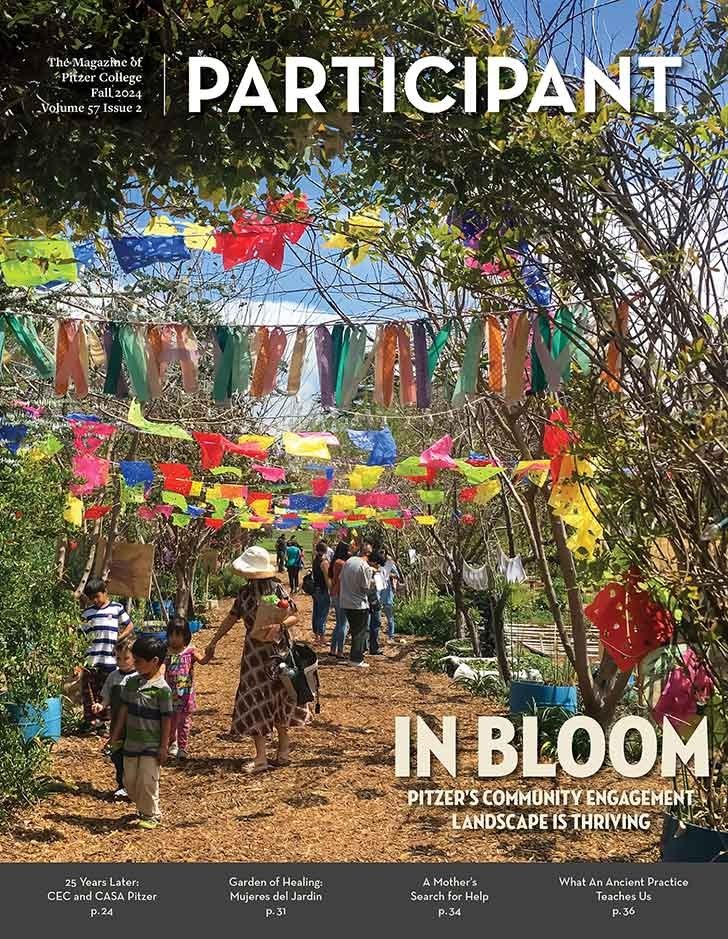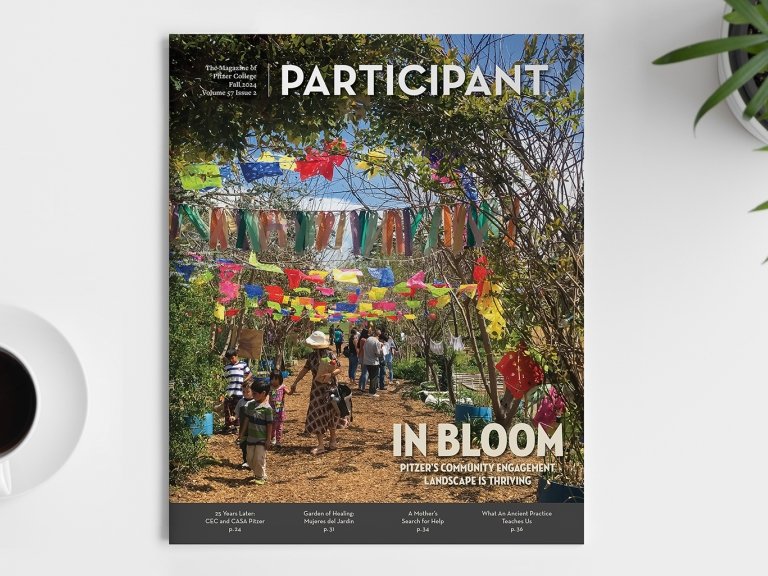Office of Communications
Experts in strategic communications, our team shares the stories of Pitzer through digital and print content that elevates and supports the College’s mission, goals, and community

We Are Pitzer’s Storytellers
By partnering with the Pitzer community to share stories of student, alumni, and faculty achievements, our purpose is to show the world the people, programs, and impact that make Pitzer College unique and exceptional.
The Communications team has expertise in writing/editing news, web content, promotion/publicity, and internal communications; design and multimedia (photo/video); web strategy and management; and traditional and social media outreach.
We publish Participant magazine and scores of print and digital publications, capture imagery that brings Pitzer to life in those channels and on the web, manage the strategy and content for pitzer.edu, and provide monthly College news and updates via the Pitzer Today e-newsletter.
We manage the @PitzerCollege social media presence for:
We are experts in news media strategy and outreach. We also champion and steward Pitzer’s brand identity, messaging, and style guides.
We love to hear from the Pitzer campus community, alumni, families, and the public. Contact us!
Common Ways to Interact
• Submit a news tip or story idea
• Inquire about a creative project
• Obtain web guidance
• Ask for media/reporter assistance
• Find answers to general questions
“Participant” Magazine

The Magazine of Pitzer College
In Bloom: The fall 2024 issue of Participant celebrates the community engagement work of several Pitzer people and organizations, past and present.
"Participant" MagazineCollege News, Announcements & Media Mentions
Pitzer News
Featured
New Issue of Participant Asks: What Does Community Engagement Look Like?
The fall 2024 magazine celebrates the work of several Pitzer people and organizations, past and present
Contact Us
Office of Communications